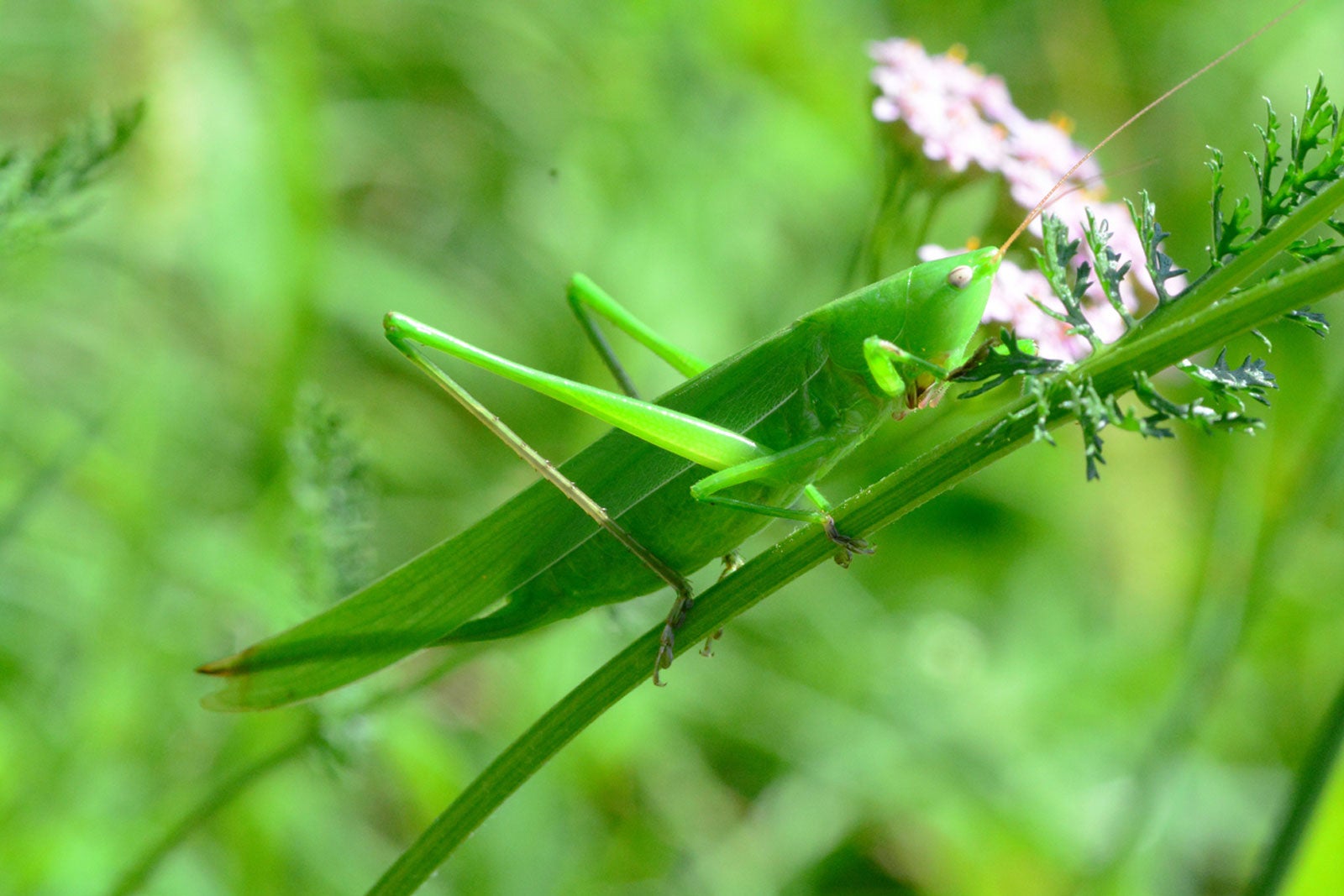Tips For How To Kill Grasshoppers - How To Control Grasshoppers


Sign up for the Gardening Know How newsletter today and receive a free copy of our e-book "How to Grow Delicious Tomatoes".
You are now subscribed
Your newsletter sign-up was successful
In excessive numbers, grasshoppers can be a gardener's nightmare, especially in rural areas. While high infestations can be difficult to eradicate, their numbers and damage can be greatly reduced with careful plant selection, the addition of predators, and the use of organic forms of insecticides.
Stop Grasshoppers from Eating My Plants
Learning how to control grasshoppers begins with prevention and an understanding of how these pests feed and reproduce. Grasshoppers lay their eggs in the soil during fall, where they hatch the following spring. Once hatched, they begin feeding on grasses and broadleaf plants. Gardens that are well irrigated with an abundance of vegetation available are quite favorable to grasshoppers. Therefore, they will stick around as long as this food supply remains abundant. One of the best ways to prevent this is to make the area less appealing to grasshoppers. Selecting plants that grasshoppers find distasteful can help deter them from the garden and surrounding areas. Some of these plants include:
Vegetable crops that are generally avoided by grasshoppers include:
Methods of Organic Grasshopper Control
Other than the addition of less favorable plants in the landscape, you may want to introduce predators to the area whenever feasible. Making your garden a welcome mat to various bird species can help keep grasshopper numbers down. Alternatively, there are also many types of good insects, such as robber flies, that feed on grasshoppers. Allowing these bugs into the garden can help eliminate grasshoppers in the garden. The use of floating row covers is another alternative for protecting precious crops and other plants.
Safely Kill Grasshoppers
While there are several insecticides available for grasshopper control, most have only a limited effect and must be reapplied often. For those seeking more organic grasshopper control rather than resorting to chemicals, this can be discouraging. However, using botanical and biological products to kill grasshoppers can be an effective alternative. Nosema locustae is a naturally occurring microbe that effectively kills grasshoppers by infecting them with disease. Another similar fungal microbe is Beauveria bassiana. This fungus grows naturally in soils and acts as a parasite to many types of insects. Both of these safely kill grasshoppers when they ingest the spores.
Sign up for the Gardening Know How newsletter today and receive a free copy of our e-book "How to Grow Delicious Tomatoes".

Nikki Tilley has been gardening for nearly three decades. The former Senior Editor and Archivist of Gardening Know How, Nikki has also authored six gardening books.